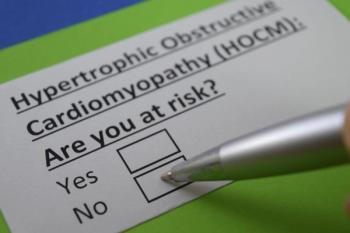Poor sleep in midlife can be associated with a higher risk of cardiovascular disease (CVD) among women, according to a study recently published in the American Heart Association’s Circulation journal.1
Up to 50% of women have reported that they struggle with sleep issues in midlife, while CVD stands as the main cause of death in women.
Key Takeaways
- The study, which tracked sleep patterns among midlife women over a 22 year period, provides evidence supporting the link between sleep and heart health.
- Women with either persistent short sleep or consistently high insomnia had a higher risk of CVD, with those with insomnia having a higher risk (1.71 times) compared to those with short sleep (1.51 times) than those with low symptoms.
- Study findings underscore the importance of considering sleep patterns when evaluating women's risk of heart disease.
Midlife, typically between ages 40 to 65, is a crucial time that involves both heart health and sleep, especially during menopause for women. During menopause, women often experience heart risks sooner.
Researchers of the study examined whether changes in sleep patterns during midlife could be linked to heart-related issues later in life as the association between long-term sleep troubles in midlife and heart disease risk in women is still unclear.
In a prospective cohort, participants who were part of the SWAN study (Study of Women’s Health Across the Nation), had their sleep monitored up to 16 times over 22 years.
Beginning in 1996 and on, up to 2964 participants aged 42 to 52 from 7 U.S. sites participated in annual examinations.
Women were either in their premenopausal or early perimenopausal stage, not using hormone therapy and free of CVD.
In over 16 visits, women in the SWAN study answered questionnaires about insomnia symptoms, sleep duration, vasomotor symptoms and depression.
Researchers used group-based trajectory modeling to map sleep patterns (insomnia and sleep duration).
Cox proportional hazards models were then used to test how these sleep trajectories related to CVD, considering factors like site, age, race, education and CVD risk factors.
READ MORE: Cardiovascular Care Inequities Lead to Worse Outcomes for Women With Atrial Fibrillation
After over 2 decades of review, researchers identified 4 patterns of insomnia symptoms among women: low symptoms (39%), moderate symptoms decreasing (19%), low symptoms increasing (20%) and persistent high symptoms (23%).
Women with consistently high insomnia had a 1.71 times higher risk of CVD compared to those with low symptoms.
Sleep duration revealed 3 patterns: persistently short (~5 hours, 15%), moderate (~6 hours, 55%), and moderate to long (~8 hours, 30%).
Women with persistent short sleep had a 1.51 times higher CVD risk.
Those with both persistent high insomnia and short sleep faced a 1.75 times higher CVD risk. Adjustments for other factors like vasomotor symptoms, snoring, or depression still showed a connection between insomnia and CVD.
Among many strengths, 1 major strength of this study lies in tracking sleep patterns across 16 assessments over 2 decades in midlife, a comprehensive approach.
Unlike previous studies where sleep's link to heart risk was studied at 1 point in time, this study spans the entire midlife, providing crucial insights into chronic poor sleep's connection to cardiovascular disease risk, especially in older women.
This study also has some limitations including the group with moderate to long sleep (about 7.70 hours) may limit conclusions about longer sleep.
In addition, researchers considered insomnia and sleep duration in this study, not other sleep aspects like timing and regularity.
It’s encouraged in future studies to explore both time and regularity.
This two-decade study on midlife women revealed that having ongoing trouble sleeping, especially when combined with consistently short sleep, increased the risk of heart disease by 70% to 75%.
These results highlight the need to include sleep patterns in assessing heart disease risk for women and emphasize how long-term poor sleep can impact heart health.
READ MORE: Cardiology Resource Center
This article originally appeared in Managed Healthcare Executive.
Reference
1. Thurston RC, Chang Y, Kline CE, et al. Trajectories of sleep over midlife and incident cardiovascular disease events in the study of women's health across the nation. Circulation. 2024;149(7):545-555. doi:10.1161/CIRCULATIONAHA.123.066491
























